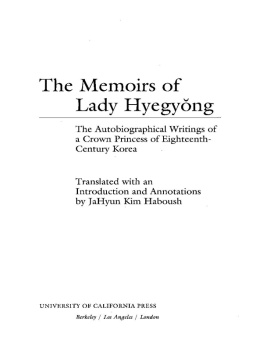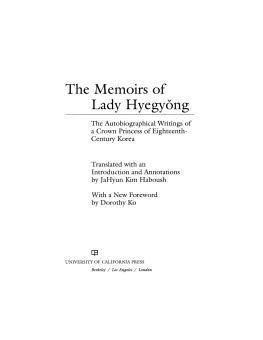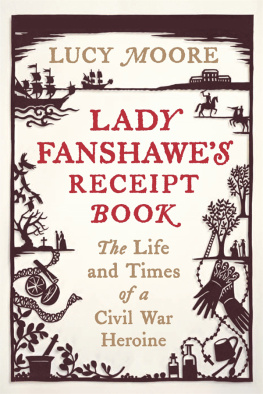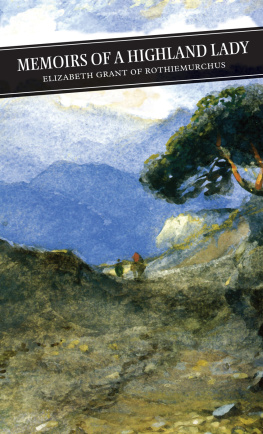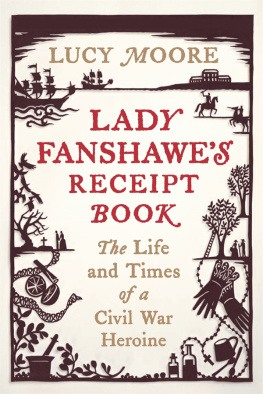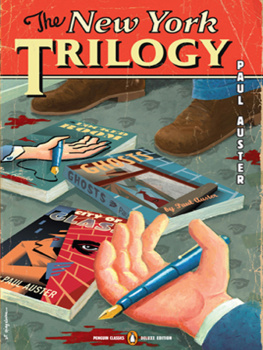Title: Memoirs of Lady Fanshawe
Author: Lady Fanshawe
Release Date: July, 2004 [EBook #6064] [Yes, we are more than one year ahead of schedule] [This file was first posted on October 31, 2002]
Edition: 10
Language: English
Juliet Sutherland, Charles Franks and the Online Distributed Proofreading
Team.
[Illustration: ANNE, LADY FANSHABE
(From a painting formerly at Parsloes)]
MEMOIRS OF LADY FANSHAWE
WIFE OF SIR RICHARD FANSHAWE, BT.
AMBASSADOR FROM CHARLES II. TO
THE COURTS OF PORTUGAL & MADRID
WRITTEN BY HERSELF CONTAINING
EXTRACTS FROM THE CORRESPONDENCE
OF SIR RICHARD FANSHAWE EDITED
WITH AN INTRODUCTION BY BEATRICE
MARSHALL AND A NOTE UPON THE
ILLUSTRATIONS BY ALLAN FEA
INTRODUCTION
There is a deathless charm, despite the efforts of modern novelists and playwrights to render it stale and hackneyed, attaching to the middle of the seventeenth centurythat period of upheaval and turmoil which saw a stately debonnaire Court swept away by the flames of Civil War, and the reign of an usurper succeeded by the Restoration of a discredited and fallen dynasty.
So long as the world lasts, events such as the trial and execution of Charles Stuart will not cease to appeal to the imagination and touch the hearts of those at least who bring sentiment to bear on the reading of history.
It is not to the dry-as-dust historian, however, that we go for illuminating side-lights on this ever-fascinating time, but rather to the pen-portraits of Clarendon, the noble canvases of Van Dyck, and above all to the records of individual experience contained in personal memoirs. Of these none is more charmingly and vivaciously narrated or of greater historic value and interest than the following memoir (first published in 1830) of Sir Richard Fanshawe, "Knight and Baronet, one of the Masters of the Requests, Secretary of the Latin Tongue, Burgess of the University of Cambridge, and one of His Majesty's Most Honourable Privy Council of England and Ireland, and His Majesty's Ambassador to Portugal and Spain." It was written by his widow in the evening of her days, after a life of storm and stress and many romantic adventures at home and abroad, for the benefit of the only son who survived to manhood of fourteen children, most of whom died in their chrisom robes and whose baby bones were laid to rest in foreign churchyards.
Two contemporaries of Lady Fanshawe, Mrs. Hutchinson and the Duchess of Newcastle, also wrote lives of their husbands, which continue to live as classics in our literature. But the Royalist Ambassador's wife is incomparably more sparkling and anecdotic than the Puritan Colonel's, and she does not adopt the somewhat tiresome "doormat" attitude of wifely adoration towards the subject of her memoir which "Mad Margaret" (as Pepys called her Grace of Newcastle) thought fitting when she took up her fatally facile pen to endow her idolised lord with all the virtues and all the graces and every talent under the sun.
Yet with less lavishly laid on colours, how vivid is the portrait Lady Fanshawe has painted for posterity of the gallant gentleman and scholar, one of those "very perfect gentle knights" which that age produced; loyal and religious, with the straightforward simple piety that held unwaveringly to the Anglican Church in which he had been born and brought up.
And of herself, too, she unconsciously presents a series of charming pictures. The description of her girlhood is a glimpse into the bringing up of a Cavalier maiden of quality, of the kind that is invaluable in a reconstruction of the past from the domestic side. In the town-house in Hart Street which her father, Sir John Harrison, rented for the winter months from "my Lord Dingwall," where she was born, her education was carried on "with all the advantages the time afforded." She learnt French, singing to the lute, the virginals, and the art of needlework, and confesses that though she was quick at learning she was very wild and loved "riding, running and all active pastimes."
One can picture the light-hearted "hoyting girl" breaking loose when she found herself at Balls in Hertfordshire, where the family spent the summer, and skipping and jumping for sheer joy at being alive. And then we see her at fifteen suddenly sobered by the death of her mother, a lady of "excellent beauty and good understanding," and taking upon her young shoulders the entire management of her father's household. With naive satisfaction she tells of how well she succeeded and how she won the esteem of her mother's relations and friends, being ever "ambitious to keep the best company," which she thanks God she did all the days of her life.
Her father, like other loyal gentlemen, cheerfully suffered beggary in the King's cause. His estates and property were confiscated and he himself arrested. He managed to escape to Oxford, whither his daughters followed him, to lodge over a baker's shop in a poor garret with scarcely any clothes or money, they who had till then lived in "great plenty and great order."
The seat of learning was strangely transformed by the presence there of the moribund Court indulging in its last fling of gaieties and gallantries on the eve of the debacle of Marston Moor. Soldiers swarmed in the streets and were billeted over the college gates, and gardens and groves were the trysting-place of courtiers and beautiful ladies in that fair spring-time. Oxford melted down its plate for the King and gave up its ancient halls to masques and plays for the amusement of the Queen.
Sir John Harrison and his young daughters played their part in this brilliant society. Mistress Anne's tender heart was moved to pity by the "sad spectacle of war," when starving, half-naked prisoners were marched past the windows of their lodging, but nothing could damp for long her high spirits and girlish gaiety. We are told (not by herself, but by the arch-gossip, old Aubrey) that in the company of Lady Isabella Thynne, brightest star of the Stuart Court, "fine Mistress Anne" played a practical joke on Dr. Kettle, the woman-hating President of Trinity, who resented the intrusion of petticoats into his garden, "dubbed Daphne by the wits." The lady in question aired herself there in a fantastic garment cut after the pattern of the angels, with her page and singing boy wafting perfumes and soft music before her, an apparition not likely to soothe the gigantic, choleric doctor. Lady Isabella and her friend Anne Harrison figure in one of the most graphic and remarkable chapters of "John Inglesant," in which the author has also drawn largely from these memoirs for a foundation to one of his imaginary episodes. The girl of eighteen, full of life and enthusiasm, was doubtless flattered at being taken up by the fashionable Court beauty, and may have allowed herself to be led into rather dangerous frolics, till Richard Fanshawe, a connection of her mother's family whom she had not met before, came to wait on the King at Christ Church. The two were thrown much together, and we may be sure Anne's time was now claimed by one she admired even more fervently than the eccentric Lady Isabella. Sir Richard wooed and won his fair young kinswoman amidst the alarums of war, and they were married at Wolvercot Church in May 1644, when the fritillaries were in bloom along the banks of Isis and Cavaliers still made merry in the last stronghold of a waning cause.
It must have been a picturesque group which assembled at the altar of the little quiet country church; the joyous bride with her fair young sister and handsome father of whom she was so proud, and the genial bridegroom who was of "more than the common height of men," and so popular that every one, even the King, called him Dick. Those troublous times had reduced the fortunes of both Harrisons and Fanshawes to the lowest ebb, and the young couple started their married life on 20 pounds and the forlorn hope of their Sovereign's promise of eventual compensation. When her husband went to Bristol with the Prince of Wales, we see the young wife left at Oxford, in delicate health, with scarcely a penny and a dying first-born. She relates how she was sitting in the garden of St. John's College breathing the air for the first time after her illness, when a letter came from Bristol, to her "unspeakable joy" containing fifty gold pieces and a summons to join Mr. Fanshawe, and how there was a sound of drums beating in the roadway under the garden wall, and she went up to the Mount to see Sir Charles Lee's company of soldiers march past, and as she stood leaning against a tree a volley of shot was fired to salute her, and she narrowly escaped being hit by a brace of bullets which struck the tree two inches above her head.




